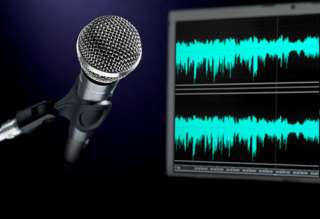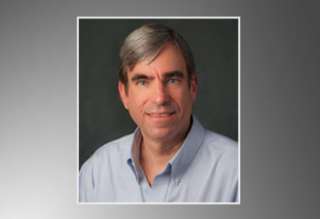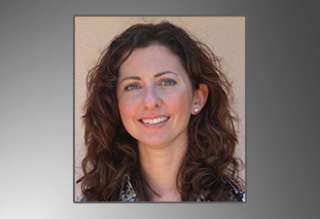SPS Feed
Top Reasons to Join SPS Today!
1. IEEE Signal Processing Magazine
2. Signal Processing Digital Library*
3. Inside Signal Processing Newsletter
4. SPS Resource Center
5. Career advancement & recognition
6. Discounts on conferences and publications
7. Professional networking
8. Communities for students, young professionals, and women
9. Volunteer opportunities
10. Coming soon! PDH/CEU credits
Click here to learn more.
The Latest News, Articles, and Events in Signal Processing
Correlation filters (CFs) have been extensively used in tracking tasks due to their high efficiency although most of them regard the tracked target as a whole and are minimally effective in handling partial occlusion. In this study, we incorporate a part-based strategy into the framework of CFs and propose a novel multipart correlation tracker with triangle-structure constraints.
Self-learning super-resolution (SLSR) algorithms have the advantage of being independent of an external training database. This paper proposes an SLSR algorithm that uses convolutional principal component analysis (CPCA) and random matching. The technologies of CPCA and random matching greatly improve the efficiency of self-learning. There are two main steps in this algorithm: forming the training and testing the data sets and patch matching.
This paper presents a joint dehazing and denoising scheme for an image taken in hazy conditions. Conventional image dehazing methods may amplify the noise depending on the distance and density of the haze. To suppress the noise and improve the dehazing performance, an imaging model is modified by adding the process of amplifying the noise in hazy conditions.
The problem of authenticating a re-sampled image has been investigated over many years. Currently, however, little research proposes a statistical model-based test, resulting in that statistical performance of the resampling detector could not be completely analyzed. To fill the gap, we utilize a parametric model to expose the traces of resampling forgery, which is described with the distribution of residual noise.
The scope of the Periodical is the various aspects of research in multimedia technology and applications of multimedia, including, but not limited to, circuits, networking, signal processing, systems, software, and systems integration, as represented by the Fields of Interest of the sponsors.
The avoidance of spatial aliasing is a major challenge in the practical implementation of sound field synthesis. Such methods aim at a physically accurate reconstruction of a desired sound field inside a target region using a finite ensemble of loudspeakers.
Recently, generative neural network models which operate directly on raw audio, such as WaveNet, have improved the state of the art in text-to-speech synthesis (TTS). Moreover, there is increasing interest in using these models as statistical vocoders for generating speech waveforms from various acoustic features. However, there is also a need to reduce the model complexity, without compromising the synthesis quality.
Multi-channel linear prediction (MCLP) can model the late reverberation in the short-time Fourier transform domain using a delayed linear predictor and the prediction residual is taken as the desired early reflection component. Traditionally, a Gaussian source model with time-dependent precision (inverse of variance) is considered for the desired signal.
Each edition of the challenge on Detection and Classification of Acoustic Scenes and Events (DCASE) contained several tasks involving sound event detection in different setups.
Scope
The IEEE Transactions on Audio, Speech and Language Processing (TASLPRO) is dedicated to innovative theory and methods for processing signals representing audio, speech and language, and their applications. This includes analysis, synthesis, enhancement, transformation, classification and interpretation of such signals as well as the design, development, and evaluation of associated signal processing systems.
In this letter, we address the problem of simultaneously tracking several moving audio sources, namely the problem of estimating source trajectories from a sequence of observed features. We propose to use the von Mises distribution to model audio-source directions of arrival with circular random variables. This leads to a Bayesian filtering formulation, which is intractable because of the combinatorial explosion of associating observed variables with latent variables, over time.
Aiming at accurate weak sea-surface target detection, this letter devotes to designing a learning-based detector that can work well even in varying detection environments. We first exploit the concept of the fractal theory to extract three representative features in the time and frequency domains and construct a three-dimensional feature space. We then combine the constructed feature space with the decision tree approach to design an environment-adaptive detector.
We investigate the blind identification and separation of underdetermined linear instantaneous mixtures with a single sensor and an arbitrary known number of sources with finite known support and uniform distribution. We propose channel estimators based on the high-order statistics of the received signal and on the rotational symmetries of the source constellations. Explicit expressions for distinct and equal rotation orders are derived.
In this letter, we address an audio signal separation problem and propose a new effective algorithm for solving a bilevel optimization in discriminative nonnegative matrix factorization (NMF). Recently, discriminative training of NMF bases has been developed for better signal separation in supervised NMF (SNMF), which exploits a priori training of given sample signals.
Scope
The IEEE Signal Processing Letters is an archival publication designed to provide rapid dissemination of original, cutting-edge ideas and timely, significant contributions in signal, image, speech, language and audio processing.
Lecture Date: July 25, 2019
Chapter: Columbus
Chapter Chair: Philip Schniter
Topic: Cyber Attacks on Internet of Things Sensor Systems for Inference
Lecture Date: July 15, 2019
Chapter: Guadalajara
Chapter Chair: Rodrigo Calderon
Topic: Distributed Signal Processing
In this paper, we devise a communication-efficient decentralized algorithm, named as communication-censored alternating direction method of multipliers (ADMM) (COCA), to solve a convex consensus optimization problem defined over a network. Similar to popular decentralized consensus optimization algorithms such as ADMM, at every iteration of COCA, a node exchanges its local variable with neighbors, and then updates its local variable according to the received neighboring variables and its local cost function.
A major drawback of subspace methods for direction-of-arrival estimation is their poor performance in the presence of coherent sources. Spatial smoothing is a common solution that can be used to restore the performance of these methods in such a case at the cost of increased array size requirement. In this paper, a Hadamard product perspective of the source resolvability problem of spatial-smoothing-based subspace methods is presented.
Pages
SPS Social Media
- IEEE SPS Facebook Page https://www.facebook.com/ieeeSPS
- IEEE SPS X Page https://x.com/IEEEsps
- IEEE SPS Instagram Page https://www.instagram.com/ieeesps/?hl=en
- IEEE SPS LinkedIn Page https://www.linkedin.com/company/ieeesps/
- IEEE SPS YouTube Channel https://www.youtube.com/ieeeSPS









